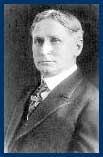Total Depravity
Unconditional Election
Limited Atonement
Irresistable Grace
Perseverance of the Saints
You’ve probably seen this acronym, designed to teach some of the main tenets of Calvinism. But where does it come from? Who first used it? Covenant College professor Ken Stewart published an article in 2009 in which he investigated the origin of this device. He states:
“The one clear source drawn on by Steele and Thomas which did employ the TULIP acronym was Loraine Boettner’s The Reformed Doctrine of Predestination (1932). Evidently then, Steele and Thomas were not the originators of TULIP but only among its most successful popularizers; the acronym has a shadowy history extending back to Boettner’s utilization of it, and perhaps beyond…Yet Boettner claims no originality in introducing [the acronym]. It might be fairly inferred that he has found [it] already in circulation.”
And in fact TULIP had been in use as a teaching device, since perhaps at least as early as 1905, when the Rev. Cleland Boyd McAfee used the acronym in a lecture before the Presbyterian Union, meeting in Newark, New Jersey. According to William H. Vail, writing in The New Outlook [vol. 104 (1913), p. 394], in an article titled “The Five Points of Calvinism Historically Considered,” Vail states that:
“Some eight years ago I had the privilege of hearing a popular lecture by Dr. McAfee, of Brooklyn, upon the Five Points of Calvinism, given before the Presbyterian Union of Newark, New Jersey, which was most interesting as well as instructive. To aid the mind in remembering the Five Points, Dr. McAfee made use of the word Tulip, which, possessing five letters, lends itself nicely to the subject in hand, especially as it ends with the letter P, as will be seen later.”
Cleland Boyd McAfee was born on this day, September 25, 1866, and he may well have been the originator of the famous T.U.L.I.P. acrostic used to teach some of the main tenets of Calvinism. His parents were John Armstrong McAfee and Anna Waddle (Bailey) McAfee. Cleland’s father was the founder, in 1875, of Park College, located in Parkville, Missouri. Cleland had four brothers and one sister, and all the McAfee children were educated at Park College. [I’m all for homeschooling, but how many parents start colleges?]. Graduating from Park, in 1884 with the B.A., he then prepared for the ministry at Union Theological Seminary in New York, graduating there in 1888. Cleland earned his Ph.D. at Westminster College (also in Missouri) in 1892. Thereafter he returned to Park College, where he served as professor, choir director, and chaplain for nearly twenty years. Concurrently during these years, he also served as Stated Supply and later Associate pastor of the Presbyterian church in Parkville.
In 1901, Dr. McAfee answered a call to serve the First Presbyterian Church of Chicago. Three years later he removed to the Lafayette Avenue Church of Brooklyn, New York. It would have been during this latter pastorate that the above lecture was delivered, where Mr. Vail heard Dr. McAfee use the TULIP acronym. From 1912 to 1930, Dr. McAfee was professor of systematic theology at the McCormick Theological Seminary, in Chicago. and for the last six years of this ministerial career, he served as head of the Presbyterian Board of Foreign Missions, 1930-1936. This would have been during the time of the controversy over the Independent Board for Presbyterian Foreign Missions, founded in part by Dr. J. Gresham Machen. Dr. McAfee’s last years were spent traveling and lecturing. “He was resting between lecture trips” when he died on February 4, 1944 of a heart attack.
Among the honors accrued during his life, he had served as moderator of the General Assembly of the Presbyterian Church in the U.S.A. in 1930. A prolific author, Dr. McAfee also composed a number of hymns, most notably “Near to the Heart of God,” a hymn written not long after two of his nieces had died of diphtheria.
Words to Live By:
The TULIP acrostic, while useful, is only an inadequate summary of the theology espoused at the Synod of Dort, much less that of the theology known as Calvinism. Properly understood, the theology known by the nickname of Calvinism is simply a full-orbed understanding of what the Bible teaches. In that light, a mere five points cannot summarize the whole, or even the crux of Scriptural doctrine. Are you a student of God’s Word, the Bible? Regular, daily time in the Bible is crucial to your spiritual health.
“But his delight in the law of the Lord, and in His law doth he meditate, day and night. And he shall be like a tree planted by the rivers of water, that bringeth forth his fruit in his season; his leaf also shall not wither; and and whatsoever he doeth shall prosper. (Psalm 1:2-3, KJV)

